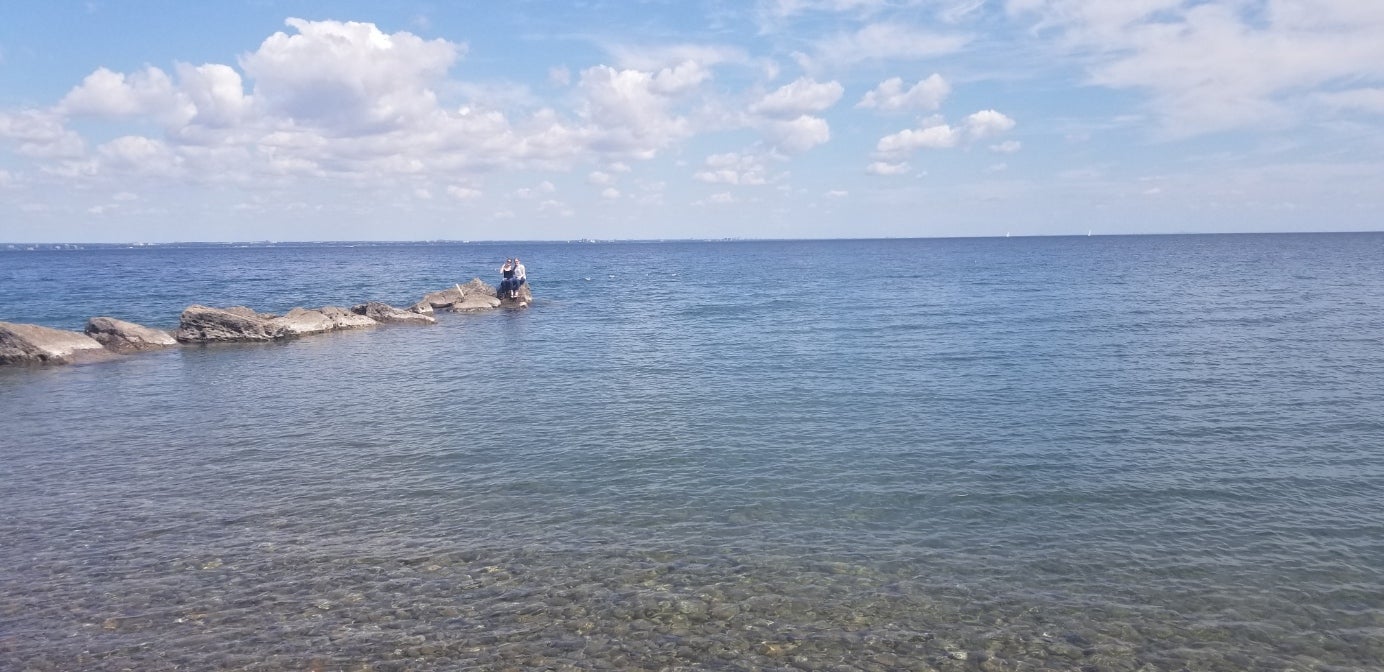Brittany Cook and Kristina Watson, Rx2019 - Hamilton
Navigating the region
The region of Hamilton had diverse clinical opportunities including teaching hospitals, family health team, community pharmacies, and long-term care. A unique feature of our region was the opportunity to guest lecture for the McMaster Physician Assistant students.

Housing was a challenge, but we were able to find an Airbnb and share with another pharmacy student. Be sure to assess the area before committing to a place to live for clinical rotations. We had a car for clinical rotations, but used the buses once to get to McMaster and they arrived on time. There is also a bus station with GO buses and Greyhounds and Aldershot has GO trains to Toronto.
Our Regional Clinical Coordinator, Janie, was great. She was approachable and responsive throughout the rotations. She welcomed us to the area with sound advice and social events. Janie arranged for us to attend CE events, including with the Hamilton Pharmacist Association and the local chapter of Diabetes Canada. She also arranged an academic detailing session for us and facilitated case-sharing from our experiences on rotation. Janie is a wealth of knowledge and has experience in numerous clinical settings (e.g. hospital, community, family health team, community health team, academia).
Practice site descriptions
Brittany
Charlton Health Inc. (Speciality Pharmacy). Worked within a community pharmacy specializing in advanced therapy. Performed independent pre-initiation advanced therapy consultations which consisted of disease education, drug education, assisting the patient to choose an advanced therapy that would work best for them, immunizations and comprehensive medication reviews. Educating patients on drug therapy and providing training on drug administration including injectable forms. Collaborated with a variety of health care providers such as; rheumatologists, gastroenterologists, nurses, etc. to advance patient care. Identified and solved drug therapy problems in relation to the patient's advanced therapy. Verified prescriptions by preforming therapeutic and technical checks. Developed education and community resources for patients. Independently prepared a 2-hour lecture for physician assistant students regarding osteoporosis and rheumatological conditions.
St. Joe’s Hospital (Acute psychiatry). Worked within a multidisciplinary team of psychiatrists, medical residents and students, nurses, social workers, recreational therapists, and other staff. Identified drug therapy programs and made recommendations to optimize both psychiatric medication as well as management of side effects of psychiatric medication and patients’ co-morbidities. Performed therapeutic drug monitoring and modified dosages as required. Independently prepared and presented a lunch and learn type session to staff pharmacists regarding long-acting injectable antipsychotics. Performed medication reconciliation for newly admitted patients. Counselled patients in new medications.
Limeridge Medical Pharmacy (Community pharmacy). Performed INR testing and adapted warfarin dosing as per INR result. Verified prescription by performing independent therapeutic and technical checks. Performed a variety of services of patients including; immunizations, MedsCheck®, and TimeMyMeds programs. Assisted patients with a variety of over the counter consultations as well as prescription medication consultations.
During my clinical rotations, I have gained a tremendous amount of knowledge both therapeutically as real-life application of the knowledge that we all learn in school. The one experience that I am the most thankful for was working in the acute psychiatry unit. It is one thing to learn about psychiatric conditions in a classroom, it is another thing to work with patients who are acutely psychotic. Working with patients who are actively hallucinating (either visually, auditory or tactically) is something that I did not have any experience with. I went into this rotation not knowing how to talk to a patient who’s reality is very different than my own, it was hard to interact with someone who is seeing or hearing things that I am not hearing or seeing. Throughout my experience, I not only gained knowledge in a niche pharmacy area but I also gained a better understanding of psychiatric care. I have gained comfort and confidence working with patients with psychiatric conditions.
Kristina
St Joseph's Hospital Hamilton (Outpatient pharmacy). Community pharmacy within the hospital offered a unique community experience for several reasons: (1) unique patient population (e.g. clozapine dispensing; renal transplants; hemodialysis; bariatric); (2) generous staffing allowed for clinical focus. Clinical and technical prescriptin verification; patient counselling; work-up and medication review with blister pack patients; MedsCheck; injections.
Hamilton FHT/ Compass CHC/Urban Core CHC. Worked at several different sites in primary care allowing for plentiful exposure and collaboration with different health care providers and diverse patient populations. Patient appointments with pharmacist range from 15-60 minutes to address needs such as diabetes management, smoking cessation (STOP program), memory clinic, pain management, INR testing, and complex medication management
St Peter’s Hospital – Hamilton Health Science (Palliative Care). St Peter’s Hospital is a complex continuing care hospital focusing on restorative rehabilitation, complex medical and behavioural care, and palliative care. Medication reconciliation and best-possible medication history; identify DTPs and recommend changes to interdisciplinary team; drug information; discharge planning; patient care rounds.
My patient care rotations allowed me to put my theoretical knowledge into practice. The IPFC series is fast-paced and condensed – I found it easy to forget the little details that make a big difference to patient care. Applying the in-class learnings to complex patients made the information stick. There are many skills I learned gained through the rotations, such as creative problem-solving and prioritizing issues with complex patients.
Helpful resources I used were drug references and textbooks from the online library, clinical guidelines, peers, and my regional coordinator and preceptors.
Advice
for
future
students


Our advice for future students as they are preparing for clinical rotations is to be open-minded with what you will learn on clinical rotations. Anyone can study and learn therapeutics; this is the time to learn things that you can’t learn from a textbook. Take this time to learn from your preceptors, beyond what you will learn from a textbook. Learn what to do when the answer can’t be found on Lexicomp, learn how to make a tough decision, and learn how to confidently articulate this decision not only to other health care providers but also to the patient. Learn how to express confidence in a decision when you don’t know if you are making the correct decision.
Be engaged in the rotation, and make sure to take opportunities to learn. There are many very smart pharmacists in the region take the time to learn from all of them. Join the Hamilton Pharmacists Association and go and meet pharmacists in the community, you will be very surprised by all of the great pharmacists in the area who are pushing the profession forward in their own specialties.